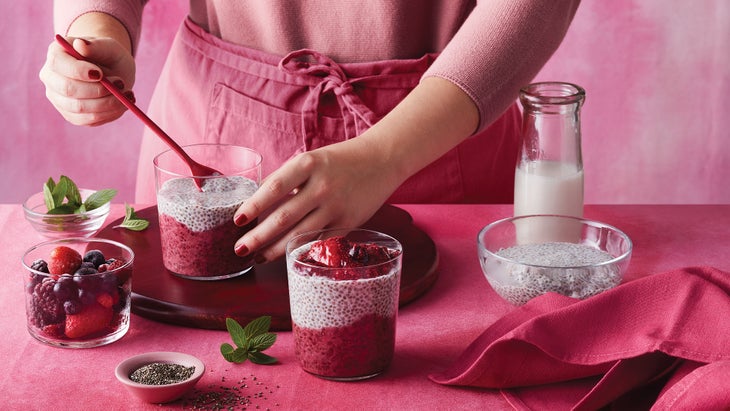Heading out the door? Read this article on the new Outside+ app available now on iOS devices for members! Download the app.
At CE, we love learning about brain-boosting foods to keep in our rotation. But it’s just as important to watch out for the foods we should avoid for better mental and psychological health. Especially when these foods are so common in our daily lives:
1. Alcohol
Ironically, a lot of people seek solace from stressors in alcohol. Who doesn’t mind ending a particularly hard day with a drink? But while moderate amounts can ease initial symptoms of stress and anxiety, these symptoms can bounce back with a vengeance when you start to crash.
As your blood alcohol content (BAC) rises, the more relaxed or excited (aka tipsy or drunk) you feel. But when you put the glass down and your BAC levels begin falling, alcohol stops working as a stimulant and starts working like a sedative. That’s why you may feel sleepy when sobering up. Descending BAC can mean more fatigue, confusion, and depression – all symptoms of stress and anxiety.
TRY THIS: You don’t have to write off alcohol completely. In fact, it’s well known that red wine is rich in healthful antioxidants. Instead, keep your BAC from free-falling from a sudden precipice by drinking in mindful moderation. The USDA 2020-2025 Dietary Guidelines for Americans recommends limiting intake to 2 drinks or less per day for men and 1 drink or less per day for women.
2. Coffee
Coffee is the productivity-juice that keeps the world running. But anybody who has ever had one too many cups in a day can tell you about the caffeine shakes. This phenomenon is characterized by unfounded nervousness, shaky hands or restless legs, and a very strong heartbeat, to list a few common symptoms. Coffee can more easily trigger those who already have anxiety disorders.
The way caffeine works is by binding to the brain’s adenosine receptors. Adenosine is a molecule that activates feelings of tiredness when they bind to their receptors. Caffeine has the ability to bond with these same receptors, but not activate them. This blocks adenosine from binding to those receptors and causing feelings of tiredness. But being that caffeine is a stimulant, it can trigger a host of sensations similar to what you feel when you’re anxious or stressed. These sensations include a faster heartbeat, higher body temperature and more sweat, higher levels of agitation and more.
TRY THIS: The obvious answer here is to cut back on your caffeine intake. Like any psychoactive, you can build up a tolerance to caffeine, needing more and more for the same results. Incrementally ease back on your intake to return your baseline to normal.
But if you really need that caffeine kick in the mornings, try opting for green tea or matcha instead, both containing L-theanine. Alternatively, pair your coffee with an L-theanine supplement. This is an amino acid linked to increasing focus and concentration, important mental tools to have when combatting anxiety.
3. Sugar
We’ve seen it done or we’ve done it ourselves: drowning our sorrows in a pint of ice cream. But there’s bad news out there for sugar fiends who have anxiety. There is plenty of sound science that supports the link between high sugar intake and stress or anxiety.
It’s a no-brainer that sugar and mood disorders go hand in hand (self-medication, anyone?). A study from 2019 found that regularly eating saturated fats and added sugars is linked to greater anxiety symptoms in adults over the age of 60. The good news is that the inverse is also true. This same study suggests that better dietary habits have the potential to reduce anxiety symptoms. Furthermore, this connection between anxiety and sugar consumption can lead to a vicious cycle. When we self-medicate for stress with sugar, this can develop into a habit because stress further engrains habitual behaviors. The bottom line? It becomes increasingly difficult to curb stress-related sugar consumption, which we know can impact long-term psychological health.
TRY THIS: We know exactly how hard it can be to cut sugar out of our lives, even temporarily. Our editors have tried it for themselves and we constantly share tons of no-sugar recipes. To effectively reduce sugar consumption, start with the obvious. Eat before you go grocery shopping and cut processed white sugar desserts off your list. Then, replace the white stuff with a better-for-you alternative. One of our favorites is monk fruit, the starring sweetener in the following clean treats:
